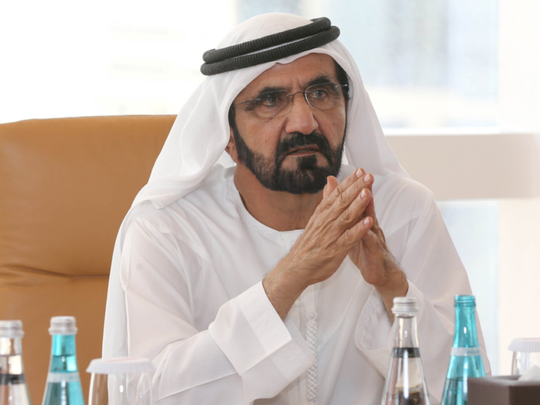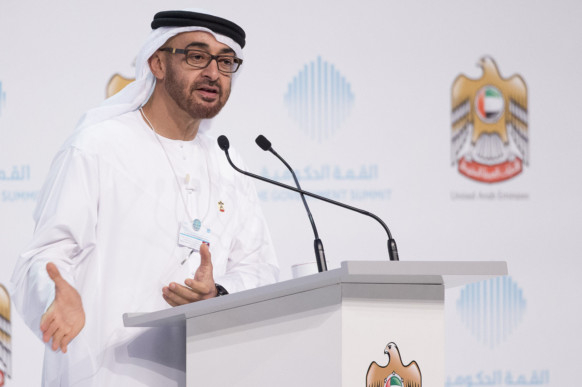
Dubai: His Highness Shaikh Mohammad Bin Rashid Al Maktoum, Vice-President and Prime Minister of the UAE and Ruler of Dubai, Satuday announced an upcoming ministerial retreat to look at ways to move the UAE’s economy beyond oil.
Posting on his Twitter account, Shaikh Mohammad said that the UAE’s national economy does not now depend on oil, with 70 per cent of GDP coming from non-oil sectors, and that the government will look towards building an economy that is not affected by market fluctuations.
He said the country would add new economic sectors, enhance and develop the existing ones, and create “generations that will be able to lead a balanced and sustainable national economy”.
“We will start drawing up comprehensive national plans to create a sustainable economy that ensures the happiness of next generations,” he tweeted.
He also quoted His Highness Shaikh Mohammad Bin Zayed Al Nahyan, Crown Prince of Abu Dhabi and Deputy Supreme Commander of the UAE Armed Forces, who spoke of celebrating the country’s last barrel of oil.
Today, our economy consists of a non-oil GDP of 70%. We will build an economy that is independent of oil and market fluctuations alike.— HH Sheikh Mohammed (@HHShkMohd) January 16, 2016
Celebrating the last barrel of oil, as my brother Mohammed bin Zayed has said, we will build a sustainable economy for future generations.— HH Sheikh Mohammed (@HHShkMohd) January 16, 2016
In February of 2015, Shaikh Mohammad Bin Zayed said that 50 years from now, there may be no more oil reserves to depend on, which is why the UAE government has started to focus on alternative resources to further build its economic strength.
Invest in education
“In this period, while we have the resources and wealth, we must invest in education. If we do so correctly now, in 50 years, when we ship off the last barrel of petrol, we will not be sad. I promise you, my brothers and sisters, we will be celebrating.”
The conference comes as most oil-producing countries are struggling to deal with the new reality of oil prices. Crude oil prices have been on a downward trend and have fallen from a high of more than $120 per barrel in 2013 to a little over $28 per barrel on January 15, its lowest level in more than 12 years.
In the Gulf, the governments of the GCC have looked at ways to increase revenues and cut costs. The GCC as a whole is expected to adopt a Value Add Tax in 2018, a move the International Monetary Fund (IMF) has been calling for. Oman has already increased corporate tax rates and other countries are expected to follow suit.
All six GCC countries have so far cut subsidies on petrol, with has resulted in an increase in prices by as much as 30 per cent in some countries. While the UAE has also cut energy subsidies, petrol prices here have fallen due to the UAE’s previous reliance on imports of refined petrol, which meant prices here were already in line with international prices.
Shale
The excess supply of crude has been the main trigger for this downward pressure on prices. Starting in 2014 with the shale revolution, US production of oil has skyrocketed, leading to the repeal of a law that prohibited US producers from selling oil on the international market.
The Organisation of Pet-roleum Exporting Countries (Opec) itself has struggled with a cohesive production policy. Saudi Arabia and the UAE focus on controlling market share, while other members have been calling for a cut in production. However, with the US now exporting crude and Iran, the fifth-biggest producer in Opec, expected to resume international oil sales tomorrow following the removal of international sanctions, some analysts feel that prices may drop to as low as $20, a level not seen since 1998.
The price of oil has also hit the global energy industry hard, costing the industry more than 250,000 jobs in the last five years.













